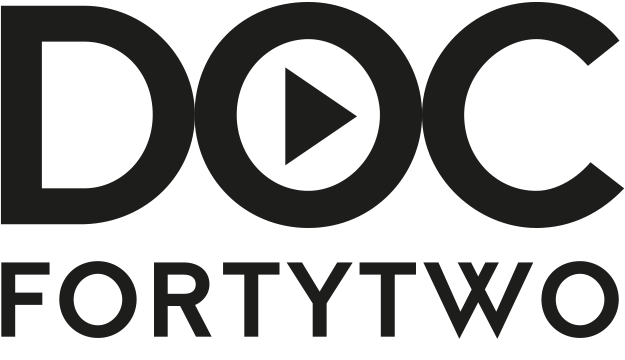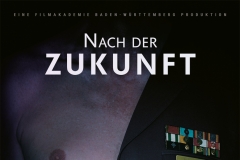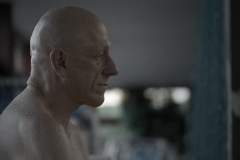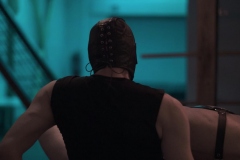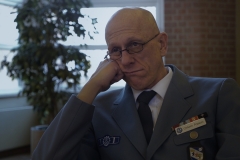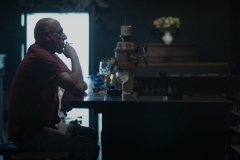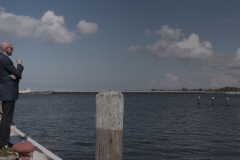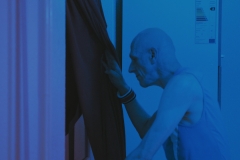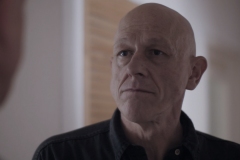Watch the film on Sooner!
Ortwin Passon’s life goes on between the military-like order of provincial THW events and the ecstasy of gay sex-on-meth-parties.
He survived being HIV-positive at the time when that was tantamount to a death sentence. He now fights for the right to unprotected sex and is writing his dissertation on the political and criminal relevance of “barebacking”.
“After the Future” tells a story of life after the non-occurrence of an expected death, the need for sovereignty and legitimacy. It is also an intimate portrayal of a complex personality.
CAST
Ortwin Passon, Heidrun Berlin, Chou-Chou de Briquette, Prof. Dr. dr Rüdiger Lautmann, Uli Menze, Mads Elung-Jensen, Daniela Brugger, Kersten Lugert, Birgit Michalsky, Angelika Mehlhorn, Wolfgang Geyer, and many more.
CREW
Directed by André Krummel
Screenplay: André Krummel, Raphaela te Pass
DOP: André Krummel
Editing: André Krummel
Sound: Erik Lemke
Music: Tobias Burkhardt
Production: André Krummel
Grading: Roland Scheliga
Dramaturgical advice: Pawel Reinhardt
Cover design: Pablo Ben Yakov
World Sales: Filmotor
Filmography of André Krummel (selection)
2018 – LORD OF THE TOYS
Screenplay, Camera, Editing
Documentary film / Filmakademie Baden-Württemberg
Premiere at DOK Leipzig, German Competition
2017 – NACH DER ZUKUNFT
Director, cinematography, editing
Documentary / Filmakademie Baden-Württemberg
Premiere at DOK Leipzig, German Competition
2017 – BERLIN EXCELSIOR
Camera, screenplay
Director, Erik Lemke / documentary / Rommel Film / RBB / cinema
Premiere at Hofer Filmtage
2016 – VIKTORIYA
Director
Short documentary / 16 mm / Filmakademie Baden-Württemberg
Premiere at Pornfilmfestival Berlin
2016 – THE HEART OF STUTTGART
Director, animation, montage
With Marc Eberhardt / short documentary, animation / Filmakademie Baden-Württemberg
Premiere at the International Festival of Animated Film in Stuttgart
2015 – LIVER
Director
Short film / Filmakademie Baden-Württemberg / MDR
Premiere at SHORTS Offenburg
2014 – HOW I LEARNED TO LOVE THE NUMBERS – montage
Director Oliver Sechting & Max Taubert / Documentary / Rosa von Praunheim Film / NDR / RBB
Premiere at Film Festival Max-Ophüls-Preis
Since 1998/99, the phenomenon of barebacking has been controversial in Germany. While the term initially only referred to unprotected sex among HIV-positive gay men, its meaning has since changed. Today it basically means: “intentional, risk-conscious, consensual, unprotected sex among men, in which it is irrelevant to all participants whether a sexually transmitted infection is present” (Ortwin Passon). In other words: While unsafe sex regularly refers to, “situational, spontaneous, unreflective and possibly one-time unsafe risk-taking behaviour without intent” (Nicole Gawron and Christine Hagenstein), barebacking necessarily involves, “conscious and intentional assumption of danger” (Rubén Ávila). Thus, one can easily and clearly distinguish between merely unsafe sex and barebacking.
In November 2006, the CDU/CSU and SPD parliamentary groups demanded the criminalization of barebacking by threatening punishment for organisers of bareback parties and internet providers of dating portals for barebackers; the sexual self-determination of barebackers became a political issue. This legal-political attack became the impetus for Ortwin’s dissertation. In it, he argues that implementing this requirement would not only be incompatible with the Federal Supreme Court’s case law on autonomous self-harm and consent to bodily harm, but also a violation of the fundamental right to free self-expression.
The longer I looked into the issue, the more I realised: this is really about the right to freedom. At the same time, I realised that a cinematic exploration can only work via the personality that devotes itself to this free expression.
Thus, it was not the academic work and its controversial topic that became the cinematic subject, but the person behind it. And not his past, but his present. The traces of the past can ultimately also be found in everyday life. Without having to resort to interviews or photos, Ortwin’s story is revealed through the plot and told from an inside perspective. When Ortwin and two friends fall over each other in a drug frenzy and develop an almost childlike joy in playing with each other, there is a danger that this can be perceived as repulsive by the viewer. For me, on the other hand, it was important – also through the use of music – to make it possible to experience what drug intoxication and sex mean for the protagonists: an unrestrained and extremely sexualised devotion in which neither the past nor the future play a role.
But that alone would not be enough for an exciting film character. For me, contradictions are needed. The fact that the self-confessed barebacker volunteers with the THW in his spare time is a fact that is difficult to understand. After all, two worlds collide there. The THW is something very bourgeois, almost provincial. I can judge that well because I was a member of the volunteer fire brigade in my village when I was ten years old. I couldn’t understand why this provocative boundary pusher was voluntarily involved in the THW in addition to his polarising academic work. The more I got to know Ortwin, the more contradictions I found to explore. In my opinion, contradictions are what our society needs because they force us to constantly re-examine our own views.
PRESS
“André Krummel succeeds in a tender yet shy cinematic introspection into the emotional, thought and life of his protagonist. A touchingly clear-sighted film about the magical moments that sustain life.” Lukas Stern / DOK Leipzig
FESTIVALS
Dok Leipzig 2017 (world premiere), Porn Film Festival Berlin, Porn Film Festival Vienna, Festival International du Documentaire Émergent Paris, Outview Film Festival Athens, MICGénero Mexico City.
AWARDS
Honorable Mention at the German Competition Long Documentary at 60th DOK Leipzig
